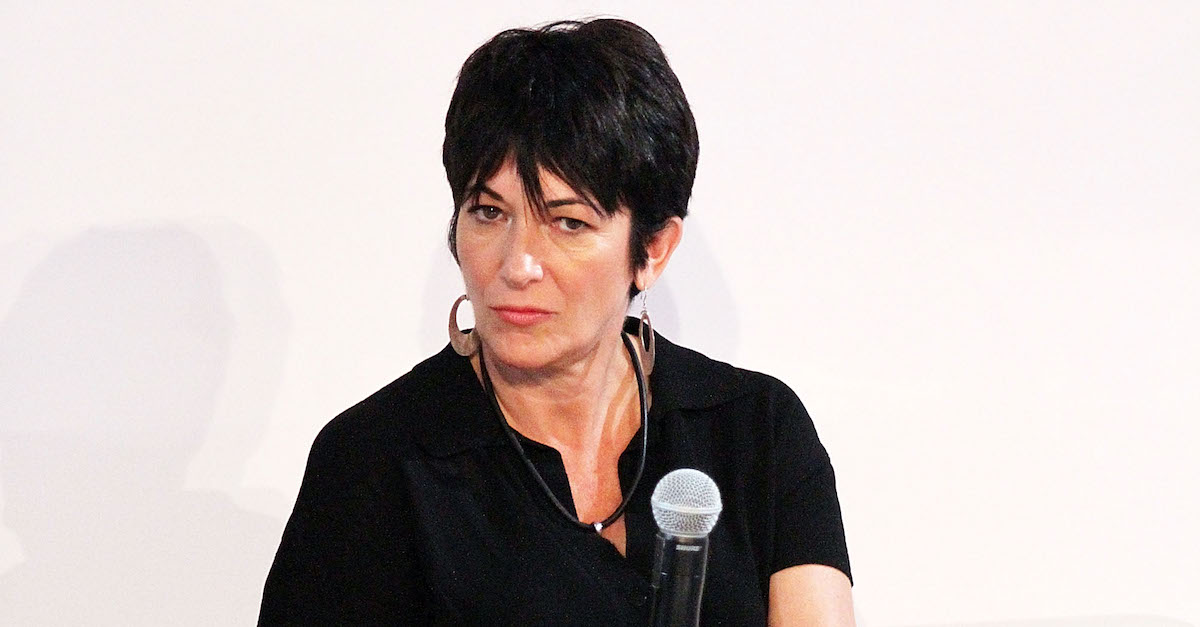
With her trial slated for July this year drawing closer, Jeffrey Epstein’s accused accomplice Ghislaine Maxwell lost another court battle to keep a half-decade-old deposition that landed her a perjury charge under wraps.
In 2016, Epstein’s renewed prosecution was still three years away when Maxwell sat for a deposition in her civil litigation with Virginia Giuffre, who claimed that the British heiress turned her into the convicted pedophile’s “sex slave.” Maxwell’s denials of those allegations formed the basis of one of two perjury counts against her.
Maxwell unsuccessfully tried to suppress her deposition last October, and she failed again to prevent certain still-redacted portions of the document from becoming public.
“In unsealing the summary judgment record, the Court of Appeals redacted ‘deposition responses concerning intimate matters where the questions were likely only permitted—and the responses only compelled—because of a strong expectation of continued confidentiality,'” U.S. District Judge Loretta Preska wrote on Monday. “In recognizing this reliance interest, the Court of Appeals redacted Ms. Maxwell’s testimony related to her consensual sexual activity with adults, but unsealed testimony related to purportedly non-sexual massages, finding that the presumption of public access was not outweighed by the private interests in sealing this portion of her testimony.”
Maxwell’s attorney Laura Menninger lobbed several arguments against lifting the redactions.
“They either fall within the category of redactions this Court already applied because they concern sexual activity, or they were improper and violated Judge Sweet’s limitations on the permissible deposition questions,” Menninger said, referring to late federal judge who presided over the civil suit against Maxwell.
Maxwell’s attorneys also argued that their client relied upon assurances that the deposition would remain confidential when they agreed to the grilling, but Judge Preska was not persuaded.
“Consistent with the Court of Appeal’s directive, the Court considered the reliance of Ms. Maxwell and others on the protective order in this case in its January 19, 2021 order, and directed materials unsealed where this reliance interest—or other private interests—did not outweigh the presumption of public access attached to these materials,” the judge’s order ends.
Menninger did not immediately respond to an email requesting comment.
The latest order in the open-records battle stems from a ruling form the Second Circuit Court of Appeals in 2019, which ruled in favor of Giuffre and the Miami Herald in broadly unsealing the case’s docket in the wake of the groundbreaking exposé “Perversion of Justice.”
The appellate court tasked Judge Preska with unsealing the docket on a case-by-case basis, weighing objections from those who may have been named in the documents. That review has been ongoing for nearly two years, and a flood of old documents have hit the public domain in the interim. They have included emails between Epstein and Maxwell appearing to coordinate their public messaging, depositions that prosecutors claim show her lying under oath, and testimony from a former butler in Epstein’s residence who claimed to have seen Maxwell’s photos of topless girls who went to his pool.
Maxwell has argued throughout that the files could taint a jury pool at her upcoming trial, and she recently filed a flurry of defense motions claiming that prosecutors improperly obtained the depositions set to come to light imminently.
[photo by Laura Cavanaugh/Getty Images]